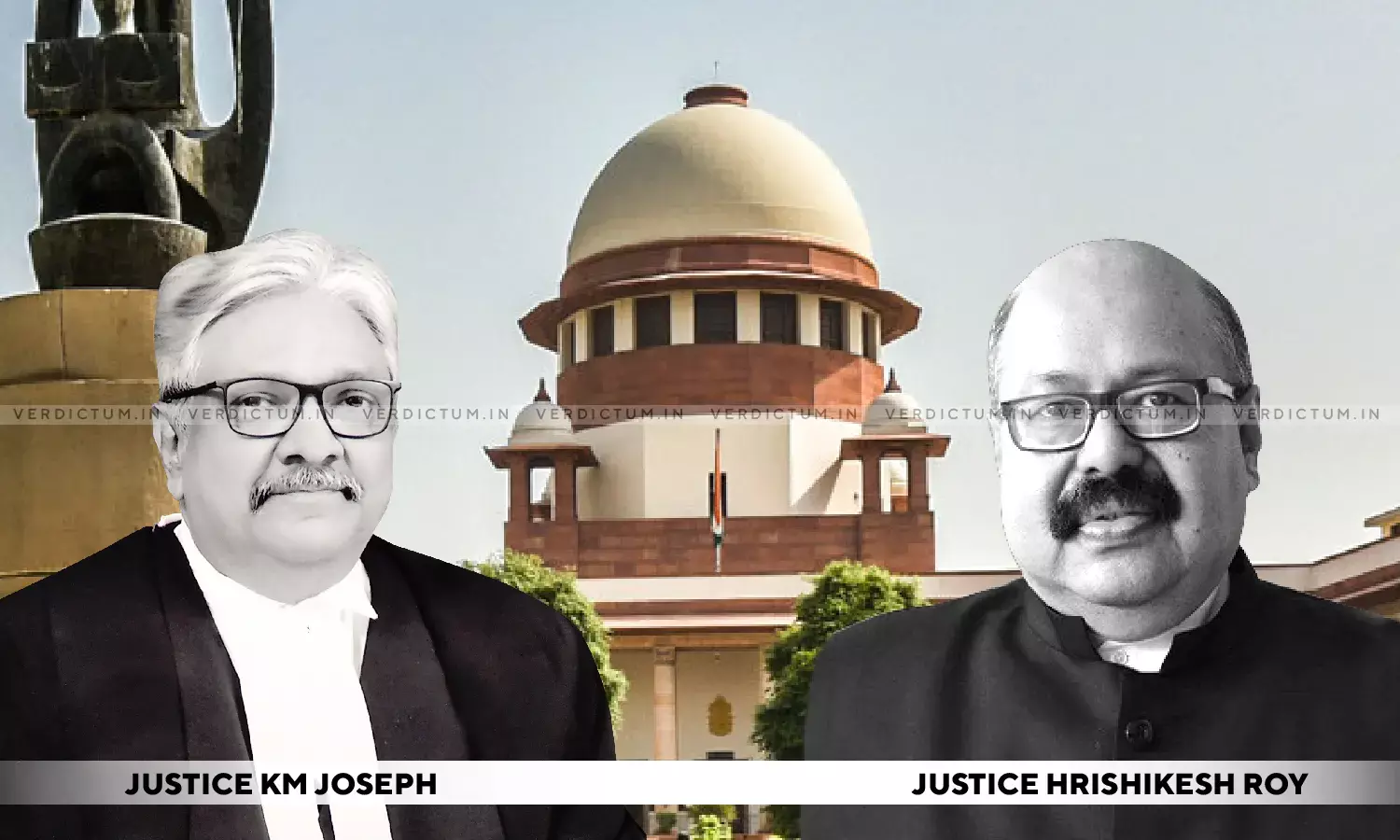Goa Civil Service Rules 2016 – Cut-Off Marks For Selection Have To Be Declared In Advertisement For Recruitment – SC

A two-judge Bench of Justice KM Joseph and Justice Hrishikesh Roy has upheld a judgment of the High Court regarding the recruitment process for civil service posts.
Counsel Mr. Pratap Venugopal appeared on behalf of the Appellant. Senior Counsel Mr. Devadatt Kamat appeared on behalf of Respondent No. 1, Senior Counsel Mr. Sidhharth Dave appeared on behalf of Respondent No. 2 and Senior Counsel Mr. Vinay Navare appeared on behalf of Respondent No. 3.
The Appellant published an Advertisement that invited applications for nine posts under the Goa Civil Service Rules, 2016. Ultimately, four candidates were called to the interview, which included the three Respondents. The Appellants fixed the cut-off at scoring 65% in the interview.
After the final interview, only one candidate was declared successful, and the results of the Respondents were not declared. The Respondents approached the Chairman of the Appellant and the Chief Secretary and filed an RTI Application regarding the publication of results.
After a fresh advertisement was issued by the Goa Civil Services, the Respondents filed a Writ Petition before the High Court. In its impugned judgment, the High Court held that the action of not recommending the name of the candidates for the posts on the ground that they have not secured 65% minimum qualifying marks in the oral interview, is illegal and beyond the powers of the Commission. The Court quashed the minimum marks criteria and ordered that the Commission will take necessary steps as per Rule 12 of the Rules of 2016 on the basis of the consolidated marks of the candidates in the written examination and oral interview without attaching any qualifying criteria to the marks obtained at the oral interview.
The Counsel for the Appellant contended before the Supreme Court that the High Court erred in placing choosing the judgments to place reliance on, and the Commission is Constitutionally allowed to fix a bar for the selection of candidates, as it is part of its Constitutional imperative flowing from Article 320. Relying on a number of judgments, the Counsel also contended only by fixing a fairly high bar would the Commission be in a position to procure the services of the best candidates.
Further, the Counsel for the Appellant pointed out that proficiency in Konkani was an inflexible requirement in the Rules and the advertisement, and by way of the interview, it was confirmed that Respondent No. 3 was not proficient in Konkani, and thereby unqualified for the post.
The respective Counsels for the Respondents stated before the Bench that on the facts of the case, the case has already been covered by a catena of judgments. It was firmly contended that there is no power of the Public Service Commission to dilute the mandate of the Rules.
The Supreme Court in its judgment took note of the material facts of the case, regarding the method of conducting the recruitment process and the rules that govern them. To that end, the bench relied on the principle laid down in the P.K. Ramachandra Iyer case and the Durgacharan Misra case, and observed that "we must notice that in the facts of this case of the 1866 candidates who appeared in the screening test / computer test, only 7 candidates which included respondent Nos. 1 to 3 cleared the test. The number stood further reduced to 4 and which again included respondents Nos. 1 to 3. Therefore, when the question arose as to how the interview should be conducted, the Commission decided on 16.05.2017 to fix 26 marks out of 40 as cut off marks. It no doubt works out at 60 per cent of the total marks in the interview segment. Rules did not provide for a separate minimum for the interview. The advertisement did not provide for a separate minimum in the interview. It is almost a week before the interview that the Commission took the decision in this regard. We have stated these facts only to highlight that this is not a case where the Commission was faced with the task of having to interview a very large number of candidates".
The Court was of the opinion that announcing the requirement of minimum marks for an interview after the entire selection process consisting of the written examination and interview was completed would amount to changing the Rules after the process is completed.
The Bench did acknowledge that the knowledge of Konkani was declared as an essential qualification. However, it held that the impugned judgment did not reflect even in the slightest way that this contention had been argued by the Appellants before the High Court or in the SLP. It opined that it is not appropriate for the Appellant to have raised that question.
The Court held that the Appellants have failed to challenge the impugned order and that the Respondents must obtain redress. While dismissing the appeal, the Bench reiterated the directions contained in the impugned order.
Click here to read/download the Judgment

